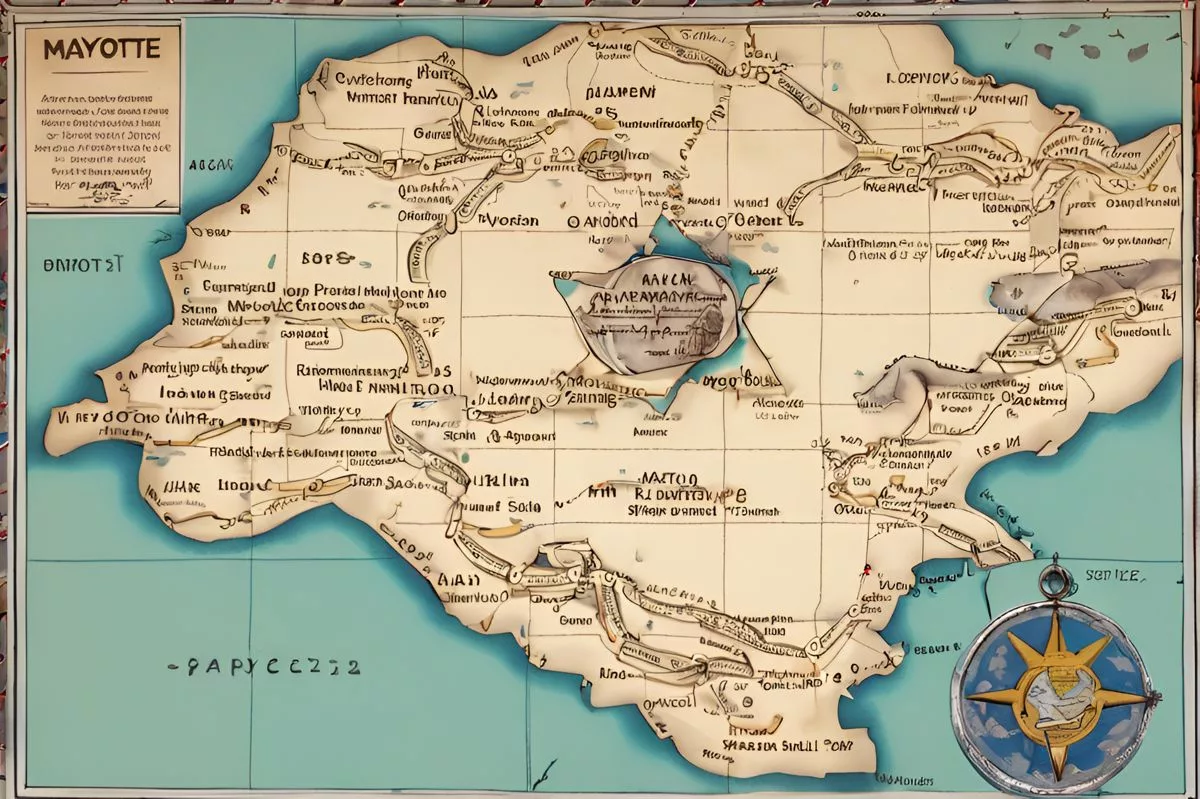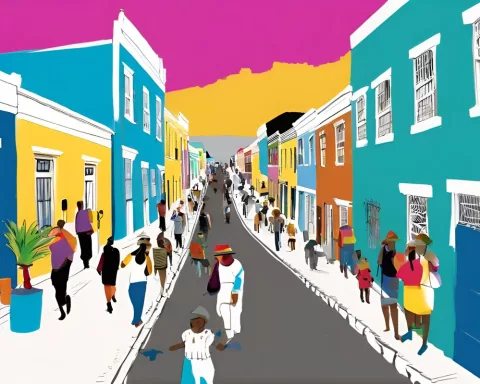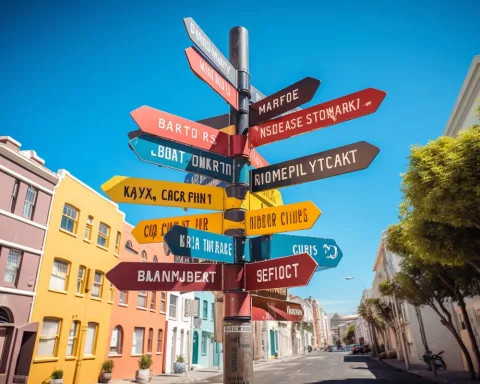Mayotte, a French overseas territory in the Indian Ocean, is facing potential changes in its future due to France’s proposed modifications to its constitution that could impact birthright citizenship. This change could discourage potential immigrants from the Comoros Islands and tackle the ongoing migration issues that have troubled Mayotte. As almost half of Mayotte’s residents are nationals from the Comoros Islands, the growing migrant population has added a nuanced dimension to the social tapestry of the island, leading to tensions among locals. The French government’s plan to alter the citizenship law is viewed as an effort to restore Mayotte’s demographic and social balance and foster a harmonious co-existence for islanders while preserving its unique cultural identity.
Will France’s proposed constitutional changes impact Mayotte’s future?
France’s proposition to modify the country’s constitution, particularly with regard to French citizenship’s fundamental nature, could impact Mayotte’s future. The proposal aims to eliminate birthright citizenship, which has significantly motivated migration from the Comoros Islands to Mayotte. This could discourage potential immigrants and tackle the ongoing migration issues that have troubled Mayotte. The French government’s strategy reflects its commitment to the well-being of Mayotte’s citizens and hopes to restore Mayotte’s demographic and social balance.
Nestled in the cobalt waters of the Indian Ocean, Mayotte, a French overseas territory, serves as a bridge between contrasting realities. Sitting on the southeastern edge of the Comoros archipelago, Mayotte, although one of France’s poorest territories, represents a beacon of hope for a superior life for residents of the neighboring Comoros islands. However, this idyllic island may soon witness a sea change as France contemplates altering immigration laws, potentially redefining Mayotte’s future.
A Constitutional Change and its Impact
At the core of this prospective change is the French government’s proposition to modify the country’s constitution, particularly with regard to French citizenship’s fundamental nature. Gérald Darmanin, the Minister of the Interior, brought this proposition to light during his recent visit to Mayotte. The proposed modifications primarily revolve around eliminating birthright citizenship or the “droit du sol” as it is known in French.
Since time immemorial, Mayotte’s droit du sol has served as a lighthouse of hope for numerous Comoros Islanders, an enticing prospect of a brighter future for their progeny. This right, which grants French citizenship to anyone born on French soil regardless of their parent’s nationality, has significantly motivated migration from the Comoros Islands to Mayotte. Hence, this proposed amendment is a strategic attempt to discourage potential immigrants and tackle the ongoing migration issues that have troubled Mayotte.
Demographic Shift and Social Dynamics
The irresistible charm of French citizenship has inspired a wave of migration from the Comoros Islands to Mayotte, leading to a considerable demographic shift on the island. It is estimated that almost half of Mayotte’s 350,000 inhabitants are not island natives but are nationals from the Comoros Islands. This surge in migration has sparked a range of reactions among the local population, adding a nuanced dimension to the social tapestry of Mayotte.
The presence of the migrant population from the Comoros Islands is strongly felt in Mayotte. A palpable tension exists between the local islanders and the immigrants, with the former attributing a rise in crime and strain on social services to the latter. As reported by Daily Maverick, the growing sense of frustration and disillusionment among the locals is a clear indicator of the social tension ignited by the significant migrant influx.
Towards Balanced Demographics and Social Harmony
The French government’s plan to alter the citizenship law is viewed as an effort to resolve migration issues and mitigate social tension. By revoking the droit du sol, France aims to diminish Mayotte’s appeal as a migration destination. Consequently, this is expected to slow down migration from the Comoros Islands, thereby restoring Mayotte’s demographic and social balance.
The French government’s strategy reflects its commitment to the well-being of Mayotte’s citizens. The hope is that by curbing immigration, the overall living standards on the island will improve, fostering a harmonious co-existence for islanders. While the proposed changes could significantly change the island’s future trajectory, they also underscore the intention to preserve Mayotte’s unique cultural identity.
As these proposed changes transition from the conceptual to the potential enforcement stage, the fate of Mayotte teeters on the edge. The island finds itself at a crossroads, torn between its inherent appeal as a French territory and the challenges imposed by migration. Even as France attempts to strike a balance between its national interests and the welfare of its overseas territories, the tale of Mayotte continues to be written, marked by hope, uncertainty, and resilience.
Nevertheless, as we’ve learned from history, change is the only constant. If implemented, the proposed amendments will undeniably transform Mayotte’s demographic landscape. However, such changes often lead to societal growth and adaptation, which may result in a unique cultural amalgamation that is diverse yet harmonious. The final chapter in this transformative story remains to be written, with time as the ultimate narrator.
-
What is Mayotte?
Mayotte is a French overseas territory located in the Indian Ocean. -
What is France’s proposed modification to its constitution and how will it impact Mayotte?
France is proposing to eliminate birthright citizenship, which has significantly motivated migration from the Comoros Islands to Mayotte. This could discourage potential immigrants and tackle the ongoing migration issues that have troubled Mayotte. The French government’s strategy reflects its commitment to the well-being of Mayotte’s citizens and hopes to restore Mayotte’s demographic and social balance. -
What is the demographic shift in Mayotte?
Almost half of Mayotte’s 350,000 inhabitants are not island natives but are nationals from the Comoros Islands. This surge in migration has sparked a range of reactions among the local population, adding a nuanced dimension to the social tapestry of Mayotte. -
What is the tension between the local islanders and immigrants?
The presence of the migrant population from the Comoros Islands is strongly felt in Mayotte. A palpable tension exists between the local islanders and the immigrants, with the former attributing a rise in crime and strain on social services to the latter. -
What is the French government’s plan to mitigate social tension in Mayotte?
The French government’s plan to alter the citizenship law is viewed as an effort to resolve migration issues and mitigate social tension. By revoking the droit du sol, France aims to diminish Mayotte’s appeal as a migration destination. Consequently, this is expected to slow down migration from the Comoros Islands, thereby restoring Mayotte’s demographic and social balance. -
How will the proposed changes impact Mayotte’s future trajectory?
The proposed changes could significantly change the island’s future trajectory, but they also underscore the intention to preserve Mayotte’s unique cultural identity. If implemented, such changes often lead to societal growth and adaptation, which may result in a unique cultural amalgamation that is diverse yet harmonious.












